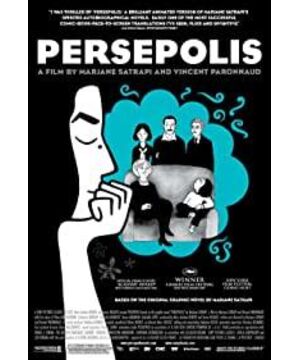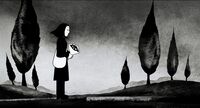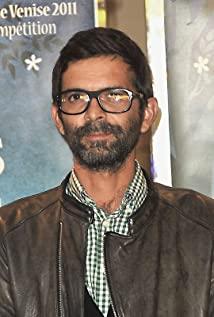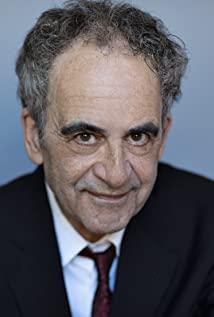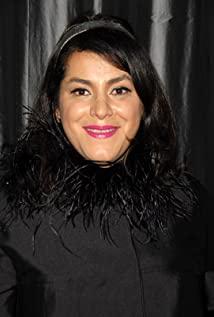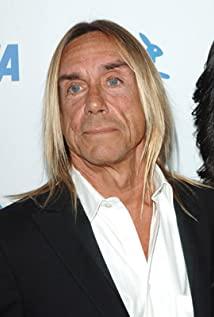After reading "I grew up in Iran" and "Escape from Tehran", I made a brief summary.
In the 20th century, Iran, like China, transformed from a feudal dynasty to a semi-colonial and semi-feudal society. Since then, this country, which has been called Persia for 2,500 years, has experienced feudal dynasties, Western-style reforms, and Islamic revolutions, and finally changed from a "pro-American" regime to the most troublesome country in the United States.
In short, today's Iran is a product of the Islamic Revolution of 1979, with the legacy of the pre-revolutionary Pahlavi dynasty and the era of US-Soviet hegemony, coupled with the rift between Iran's Shiites and the majority Sunnis in the Middle East. The unresolved grievances are intricate and sharp under the influence of multiple factors.
A brief summary:
Qajar dynasty (1779~1921): The first capital Tehran, British and Russian semi-colonies. The grandfather of the heroine Marjane in "I grew up in Iran" is the grandson of the sixth generation Shah of the Qajar dynasty (Shah, the title of the Persian emperor). The heroine belongs to a class with freedom of immigration, so some people say she is "big The suffering of the children in the courtyard", groaning without fuss, not understanding the suffering of the lower classes.
1921: The Pahlavi dynasty (Pahlavi dynasty1925~1979, after two generations of Shahs, secularized reforms), the bottom-born Reza Khan overthrew the Qajar dynasty with the support of the United Kingdom and established a constitutional monarchy regime, but unlike the United Kingdom, The Pahlavi Dynasty was the real monarch, and the "Persia" was renamed "Iran" to the outside world. At the beginning of "I grew up in Iran", the father told the heroine that Reza Khan claimed to be "the divine right of the monarchy", but 50 years ago, he wanted to learn from Turkey's Kemal to establish a republic, but under the instigation of the United Kingdom, he became the emperor and took over the power. He excluded dissidents and arrested the heroine's grandfather who believed in communism. His father commented that Reza Khan "is a dictator, but he has built Iran into a modern country, and he loves his country." He carried out westernization reforms and ordered Iranian women not to wear veils; in the context of Iranian oil being controlled by Britain, Reza Khan introduced Germany to balance Britain, and he refused to oppose Nazi Germany during World War II, angering Britain, the United States and the Soviet Union.
1941: The United Kingdom, the Soviet Union, and the United States entered Iran, and the old Pahlavi was exiled to South Africa and gave way to his son, the younger Pahlavi. Little Pahlavi reigned for 37 years, exchanging oil for British and American aid, and the country became prosperous and open. However, the "Emperor Hefei is thin and the world is thin", he lives extravagantly, corrupts rampant, the gap between the rich and the poor widens, the people cannot get the benefits of oil, and the crisis continues. The election of Prime Minister Mossadegh is the most typical example.
1951~1953: Mosaddegh, a nationalist ideologist, was elected prime minister, promoted the nationalization of oil, opposed the monopoly of oil by Britain and the United States, and restricted the small Pahlavi. In order to safeguard the interests of oil, Eisenhower agreed to the CIA "Ajax operation", using British and American military forces to remove Mosadegh, and the little Pahlavi took power again. From today's point of view, Mosaddegh, who pursues democracy, is progressive, and is also described in "Escape from Tehran" as "non-religious, democrat, and returning Iranian oil to the Iranian people".
1963: Little Pahlavi social reforms, including land reform and guaranteeing workers' income, giving women the right to vote, and implementing modern education in urban and rural areas. However, westernization and land policies have angered the Shiite church, the economic imbalance has offended the people at the bottom, the banning of the Communist Party of Iran has offended the communists, and the secret police have been used to suppress various groups in the country... In "Escape from Tehran", "the young Shah is famous for his Spending money, his wife bathed in milk, his lunch was brought in by Concorde from Paris, but the people of Iran were starving. The Shah controlled the people with savaqs, and an era of torture and fear had begun”; "I grew up in Iran" said he was "10 times worse than the old Pahlavi".
February 1979: The Shiite leader Khomeini united with anti-king forces to overthrow the Pahlavi dynasty, and the little Pahlavi went into exile in the United States. The communist "Bread Swan" uncle who was imprisoned for 9 years in "I grew up in Iran" has been released from prison.
October 1979: Islamic students stormed the U.S. embassy and held 52 hostages for 444 days. U.S.-Iran relations changed from "intimate" to "intolerable." Losing Iran became Jimmy Carter's biggest diplomatic failure. Rescue the hostages is the background of "Escape from Tehran". At this time, "the country is in depression, death squads and chaos". The CIA used the film as an excuse to rescue 6 hostages hidden in the Canadian embassy.
Taking advantage of the chaos, Khomeini launched a referendum and passed the new theocracy constitution of the Islamic Republic, stipulating that Iran implements a system of unity of government and religion, and theocracy is above everything else. Khomeini took office as the supreme leader at the age of 77. The communists in "I grew up in Iran" have fantasies, believing that "any revolution has a transformation process, and only nationalism and religious belief can call on the people", but after Khomeini came to power, he purged the communists and pro-Americans power, he was also executed.
1980~1988: Iran and Iraq, which have always had border disputes, launched wars. The US-backed Iraqi Saddam Hussein and the Soviet-backed Iran bombed each other. The heroine in "I grew up in Iran" was sent by her family to study in Austria because of the bombing of Tehran. Because of the war, Iran has become more right-leaning, raising the banner of nationalism and religiousism. The open state of life is no longer there. The religious police will arrest young people who misbehave at any time.
What the two films do not show is the development of Iran's nuclear weapons. From the Pahlavi era to the present, Iran has developed nuclear weapons with the support of the United States and Russia. matter.
An article describes it very well: Iran’s domestic political elites and people of insight yearn for Iran to “step into” modern society, and the core of power monopolized by the clergy refuses to “integrate” into modern civilization; Iranian moderate politicians advocate the peaceful use of nuclear energy internationally. However, the clergy group and its conservatives advocate that they will wipe Israel and the United States from the earth; the Iranian people are extremely eager to use oil and mineral resources to improve their material life, and the clergy group that advocates "innocence" has a monopoly on oil profits. Put money into the so-called "Islamic Revolutionary Export"; history has shaped the Iranian nation's unique spiritual tradition of resisting totalitarian tyranny, setting up a new idol of spiritual shackles in the applause of nationalism.
View more about Persepolis reviews


